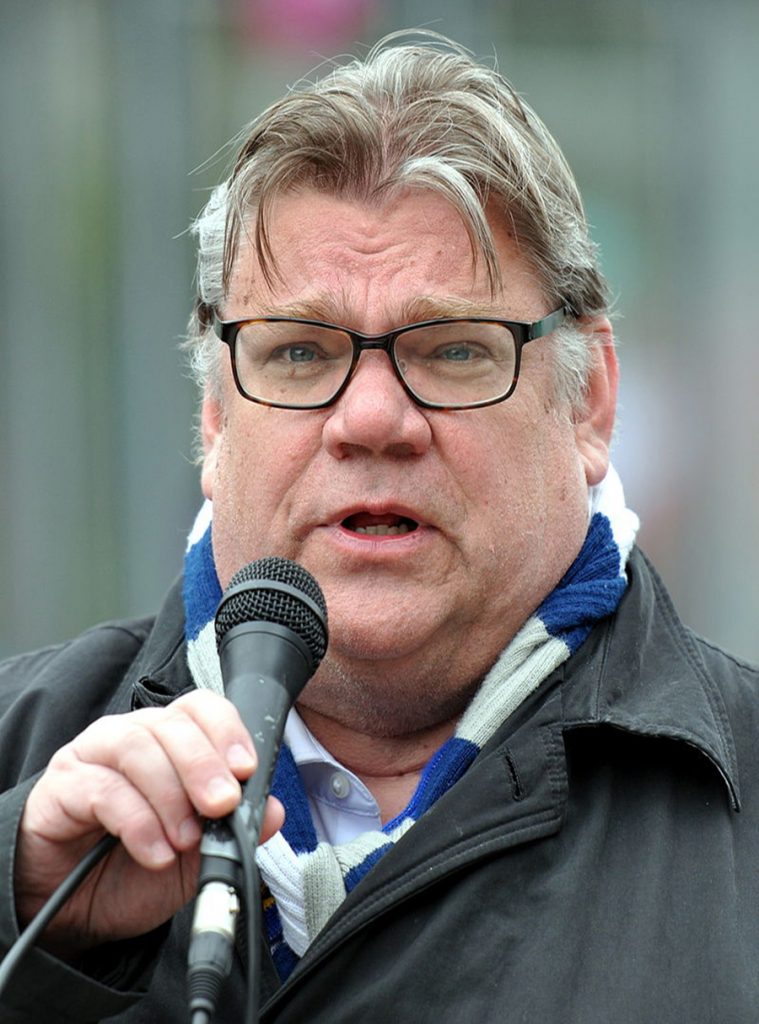Timo Juhani Soini, former Deputy Prime Minister and Minister of Foreign Affairs of Finland
Good evening, everybody and thank you very much for giving me an opportunity to present to you this evening.
Ladies and gentlemen, democracy, human rights and basic freedoms are the key pillars of a successful and humane society. I was the chairman of the Foreign Affairs Committee in the Finnish Parliament between 2011 to 2015, after which I served as a Foreign Minister of Finland for four years until 2019. As a representative of a small democratic rule of law committed country, I have experienced myself how an opposition politician can become a minister. What difference does it make and what the limits in decision making are? Today, the system of Iran doesn’t give people a chance for democratic society but the country has all the basic elements for success. Those elements are capability, will and opportunities.
First, I believe that the Iranian people have the capability. Last time we saw it was in the aftermath of the latest presidential election. People understood very clearly that the process was not at all democratic. People understand that no matter what Mr. Raisi says about his pro human rights approach, according to the center of the human rights in Iran, human rights violations have not only continued, but they have increased after Raisi was nominated as the chairman for the Supreme Court in November 2019. So, the Iranians really have the capability. The cry for freedom is getting louder every day. And no president can stop or silence it. Second, the will. On the other hand, dictatorships suppress. On the other hand, they lead to the desire for change. The question is, which one conquers the other? And how does people’s justified desire for change evolve, and how is it challenged? Challenge channeled into action. And third, opportunities. At the moment that dictatorship does not provide opportunities. It does not give people a chance to achieve a chance both Iranians on work and the pressure for democracy from the international community are needed and fundamental.
In real politics, the situation is getting more and more complicated. So, the dictators are clinging to each other. They fear all kinds of revolutions. Every ideology, religion, belief, or value becomes secondary and irrelevant. And the biggest number one goal remains, to stay in power and receive the power no matter what.
What is common between the Islamic Revolution and the Communist Party of China, the desire and need to remain in power in order to succeed, in that, the leaders are ready to sell their souls and compromise their beliefs and ideas. The recent 25-year cooperation program between two countries is palpable proof of the common ground. Ideologies are different, but the interests are mutual. The same can be seen in the international organizations and communities all the way up to the United Nations. Russia is another country working in close cooperation with Iran. Together, they keep assets and power in Syria. They have mutual interests and set the same kind of mentality. And in order to avoid official direct involvement in the crisis, they support proxy groups in different parts of the Middle East or wherever their shared interests are found, not ideologies, but interests.
The Iranian case, we also talk about hegemony and the leadership of the Islamic world, the struggle is not really about Shia–Sunni. The question is who leads, who is listened to? Iran, Saudi Arabia, Egypt, or Turkey? And when it comes to the west, the United States and Europe must adopt a common unified policy. The problem is that many European countries have a huge interest in Iranian market and bilateral trade. The US policy is essential. A divided line is always a sign of weakness. This is what four years as a Foreign Minister taught me, you must have a justifiable long-term policy to follow systematically. 600 million Europeans need a common, harmonious voice. Human Rights must be protected and promoted both home and abroad. That makes an impact. Communication is also pivotal and it must be true.
The most crucial fundamental and pivotal element on the way to success is the will of the Iranians themselves. That cannot be imported. Iranian people need friends and supporters. But the key ingredient for sustainable change can only stem from the Iranians themselves. I trust in you. As we can conclude today, the current situation in Iran seems problematic, pessimistic, and worrisome. There are plenty of reasons to be worried. For example, the United Nations supervisors have stated that the Iranian Christians are suffering from systematic persecution. Just before this conference, I learned and a couple of weeks ago, three Christian converts were sentenced to prison for five years in Iran. It is expected that the situation will just get worse under Raisi’s regime.
Despite all this, however, there is a big reason for hope as well. For hope, the Iranian people in the country and around the globe, we can see a growing desire for freedom, for change, and for a better future. I am really happy and honored to address this audience today. Here, the hope seems to become something more tangible. Thank you very much.

